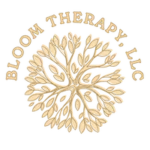If you’ve ever wondered, “Why am I so hard on myself?”, you’re not alone, and understanding this question is a crucial first step in your journey of personal growth and effective stress management techniques. It’s that familiar voice in your head telling you, “You could have done better,” even when you’ve poured your heart into a project. Or the gnawing sense that you’re never quite measuring up, no matter how many accomplishments you rack up. In this post, we’ll explore how mental health awareness and cognitive behavioral therapy (CBT) shed light on the origins of your inner critic, why perfectionism isn’t always the same as having high standards, and practical strategies to shift from self-judgment to self-compassion.
Empowering You to Question the Inner Critic
Before diving into the psychology, it helps to pause and notice how self-criticism shows up in your life. Maybe you replay mistakes in your mind, compare yourself unfavorably to others, or set impossibly high expectations and feel crushed under the pressure when you don’t meet them. This kind of self-reflection is a cornerstone of personal growth, because you can’t change patterns you haven’t first observed.
Supportive Insights from Mental Health Awareness
Greater mental health awareness helps us recognize that being hard on ourselves isn’t just “part of our personality,” but often a sign of deeper emotional patterns. When you understand that self-criticism is a learned response, you open the door to new approaches – like cognitive behavioral therapy – that can rewire unhelpful thinking habits.
Understanding Perfectionism vs. High Standards
Perfectionism often masquerades as ambition. While high standards drive realistic goals and celebrate progress, perfectionism demands flawlessness and equates mistakes with personal failure.
- High Standards: Growth-oriented, flexible, and forgiving.
- Perfectionism: Rigid, shame-driven, and self-punishing.
Perfectionism can develop early – perhaps you learned that praise only came with perfect grades, or that love felt conditional on flawless performance. Over time, the inner judge you’ve internalized equates any shortcoming with risk: the risk of rejection, embarrassment, or loss of self-worth.
Strength-Based Techniques for Soothing Self-Criticism
Cognitive Behavioral Therapy Insights
CBT teaches that our thoughts, feelings, and behaviors are interconnected. Perfectionistic thoughts, like “If I’m not perfect, I’m worthless”, trigger negative emotions (anxiety, shame) and avoidance behaviors (procrastination or overworking). Using CBT tools such as thought-recording and challenging cognitive distortions, you can notice these unhelpful beliefs, question them, and replace them with more balanced perspectives.
Fear of Failure & Childhood Impacts
Underneath much self-criticism lies a deep fear of failure. That fear may push you to overwork in the short term but often leads to burnout or avoidance in the long run. Add to that childhood messages – critical caregivers, unpredictable praise, or sibling comparisons, and you have a blueprint for a harsh inner critic.
Practical Stress Management Techniques
Identifying triggers of self-criticism is step one. When you notice that inner voice ramping up, try these stress management techniques:
- Grounding Exercises: Focus on your breath or physical sensations to interrupt spiraling thoughts.
- Progressive Muscle Relaxation: Tense and release muscle groups from head to toe to release tension.
- Mindful Breaks: Step away for a moment, stretch, gaze out a window, or take a few intentional breaths.
- Journaling Prompts: Write down critical thoughts, then challenge them with evidence against them.
- Self-Soothing Rituals: Engage in comforting activities, listen to a favorite song, sip tea, or practice gentle yoga.
Collaborative Strategies for Personal Growth
Shifting from Perfectionism to Progress
Replace “perfect” with “progress.” When you complete a project, even if it’s not flawless, acknowledge your effort. Over time, these micro-victories train your brain to value learning and growth over unattainable standards.
Building a Support System
Self-compassion thrives in community. Share your struggles with trusted friends, family, or a therapist who can remind you that vulnerability – not perfection – is what connects us all.
A Small-Practice Invitation
At Bloom Therapy, our small, client-centered practice means you’ll work directly with Jen or one of our compassionate clinicians, whether you’re drawn to the structured insights of CBT, the creative expression of Art Therapy, or the deep relational processing of EMDR and Brainspotting. Here’s how each approach might support you:
- EMDR (Eye Movement Desensitization and Reprocessing):
Helps you gently reprocess distressing memories or self-critical beliefs, so they lose their emotional charge and you can move forward with greater ease. - Art Therapy:
Invites you to externalize inner judgments through painting, drawing, or collage, giving your inner critic a safe space to be seen, explored, and transformed. - Brainspotting:
Uses focused eye positions to access and release unprocessed emotional material held in the body, allowing you to soothe and integrate self-doubt at a deeper, somatic level.
We’re here to walk alongside you as you shift from self-criticism to self-compassion, online across PA, NY, and CT or in our cozy Berwyn office. If you’re curious about which modality might fit your journey, reach out for a free consultation and let’s explore the best path forward together.
Frequently Asked Questions
Why am I so hard on myself?
It often stems from learned patterns, like perfectionistic messages in childhood or a harsh inner critic, that equate mistakes with personal failure rather than opportunities to learn.
What is cognitive behavioral therapy?
CBT is a structured, evidence-based approach that helps you identify and reframe unhelpful thoughts, reducing anxiety and improving emotional well-being.
How do I start stress management techniques?
Begin with one simple practice, like a 2-minute grounding exercise or mindful break, and gradually build consistency before layering in additional strategies.
